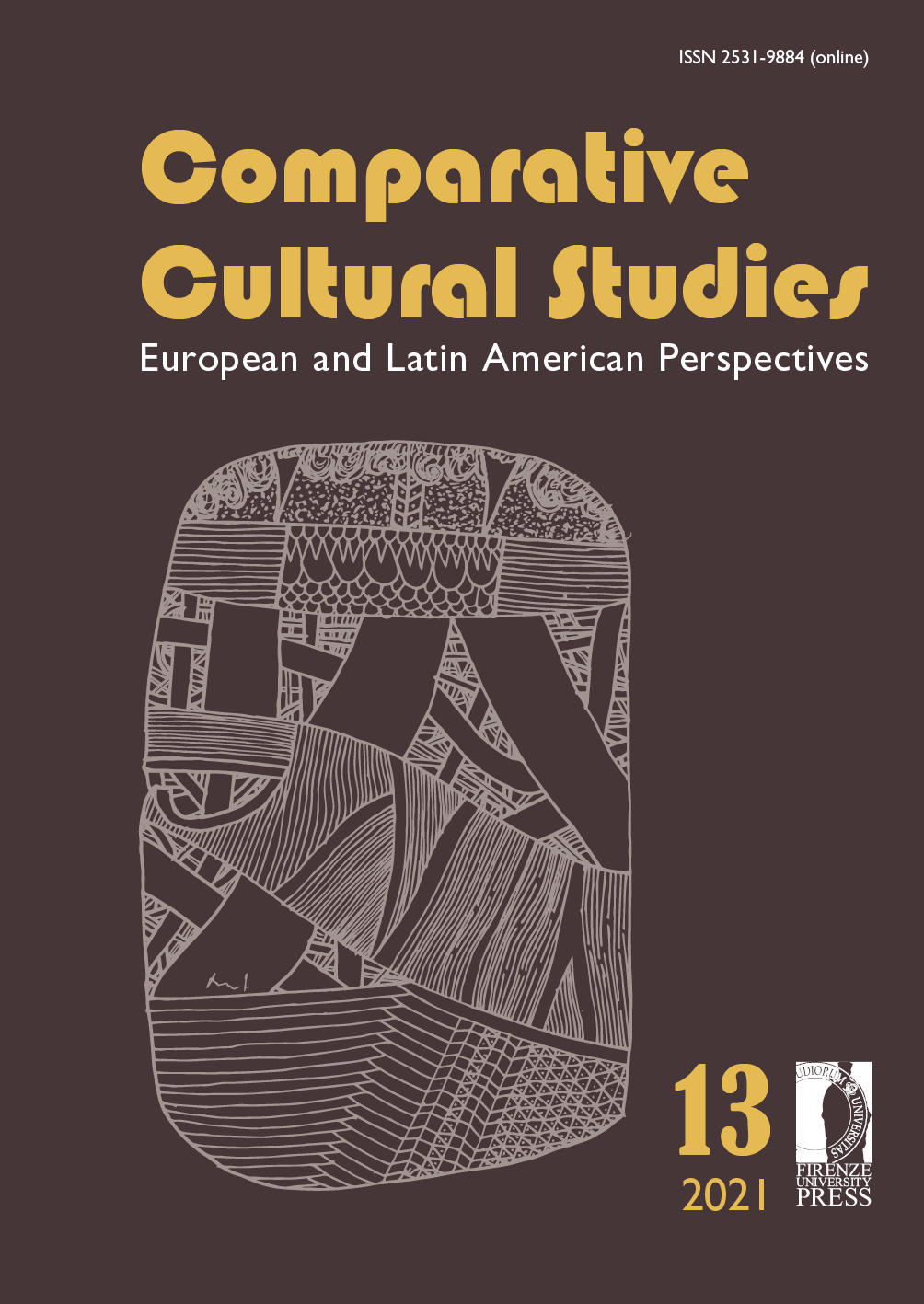Il respiro corto dello Spirito nelle mega-chiese, ai tempi della pandemia
DOI:
https://doi.org/10.36253/ccselap-12758Abstract
What effect has the pandemic on Mega-churches? The forced closure or drastic reduction of those present admitted to religious services has in fact called into question both the regime of truth that many of these churches follow, from the theological and spiritual point of view, and the drama-liturgy of hand-to-hand combat between the transmormative force of the Spirit and the prince of all evils, Satan. In this way, Mega-churches moved from the mass event experienced in large auditoriums to an online service, on a domestic scale, for many anonymous and distant faithful, to which a consoling message can be conveyed in a phase of inconvenience and suffering in their daily life. The epidemic has stolen the scene from the great performers of the Mega-churches and from those who, enthusiastic, took their seats in the stalls or moved freely possessed by spirits waiting to be freed, actively participating in the deliverance’s rite. These faithful, probably, now watching from a distance at home, in front of their computer screen, another scene, less involving and, above all, without the parrhesia of the regime of truth, which materialized in the ritual space. The epidemic represents a double contingency for the Mega-churches: on the one hand, it weakens the theological vision of a God who can do everything and of the Spirit who blows triumphantly and defeats all evil, on the other, it dematerializes the presence of the enemy who becomes invisible and intrusive, no longer physically dominable, from which no charismatic leader is more able to delivere the faithful.
Downloads
References
Adogame, A. (2011). Who is afraid of the Holy Ghost? Pentecostalism in Africa. Trenton: African World Press.
Almeida, R. (2019). Bolsonaro Presidente. Conservadorismo, evangelismo e a crise brasi-leira. Novos Estudos Cebrab, 38, pp. 85-213.
Alves, J. (2018). O voto evangéligo garantiu a eleição de Jair Bolsonaro. PortalEcoDebate, 21/10/2 (http://ecodebate.com.br : ultimo accesso il 20 novembre 2020).
Amiotte-Suchet, L., Willaime, J-P. (2004). La pluie de l’Esprit. Paris: Èditions du GSRL.
Anderson, A. (2004). An Introduction to Pentecostalism. Cambridge: Cambridge University Press.
Anderson, A. and Tang, E. (2005). Asian and Pentecostal. Leiden: Brill.Augé, M. (1992). Nonlieux. Paris : Seuil.
Bandeira, O. and Carranza, B. (2020). Reaction to the Pandemic in Latin America and Brazil: Are
Religions Essential Services?, International Journal of Latin-America Religions, October, (https://doi.org/10.1007/s41603-020-00116-0 : ultimo accesso il 22 ottobre 2020).
Barna, G. (2006). The State of the Church. Ventura: Barna Group.
Corten, A., Dozon, J-P., Oro, A.P. (2003). Les nouveaux conquérants de la foi. Paris: Karthala.
Cox, H. (1994). Fire from Heaven. Boston: Addison-Wesley.
Da Silva Moreira, A. (2018). The Aestheticization of Religion in Brazil. International Jour-nal of Latin American Religions, 2, pp. 125-141.
Davie, G. (1994). Religion in Britain since 1945. London: John Wisley & Sons.
Diotallevi, L. (2017). Fine corsa. Bologna: EDB.
Fath, S. (2008). Dieu XXL. Paris : Autrement.
Foucault, M. (2009). Le courage de la verité. Paris : Seuil/Gallimard.
Freston P. (2002). Evangelical and Politics in Asia, Africa and Latin America. Cambridge: Cambridge University Press.
Hadaway, H. and Marler, P. (2005). How Many Americans Attend Worship Each Week? Journal for the Scientific Study of Religion, 44, pp. 307-322.
Hervieu-Léger, D. (1999). Le pelèrin et le converti. Paris : Flammarion.
Introvigne M. (1996). La sfida pentecostale. Torino: Elledici.
Kozinets, R. (2015). Netnography: Redefined: London: Sage.
Lehman, D. (2010). Rational Choice and the Sociology of Religion. In B.S. Turner (ed.), The New Blackwell Companion to the Sociology of Religion, London: Wiley-Blackwell, pp. 181-200.
Mariano, R., Gerardi A.D. (2019). Eleiçois presidenciais na America Latina em 2018 e ati-vismo politico. Revista USP, 120, pp. 61-78.
Martin, D. (1990). Tongues of Fire. London: Blackwell.
Martin, D. (2002). Pentecostalism: The World Their Parish. London: Blackwell.
Meyer, B. (2009). Aesthetic Formations. New York: Springer.
Oro, A.P. (2020). Bolsonaro, gli evangelici e il coronavirus, Religioni e Società, 98, pp. 69-76.
Pace, E. and Butticci, A. (2010). Le religioni pentecostali. Roma: Carocci.
Pace, E. (2013). La comunicazione invisibile. Milano: San Paolo Edizioni.
Pace, E. (2017). Charisma as Transnational Enterprise. In P. Michel, A. Possamai, B.S. Tur-ner (eds.), Religions, Nations, and Transnationalism in Multiple Modernities, London: Palgrave Macmillan, pp. 85-105.
Pace, E. (2018). Cristianesimo extra-large. Bologna: EDB.
Prandi, R., Dos Santos, W., Bonado, M. (2019). Igrejas evangélicas como maquina eleito-rais no Brasil. Revista USP, 120, pp. 43-60.
Stark, R. & Bainbridge, W.S. (1997). A Theory of Religion. New York: Peter Lang.
Thumma, S., Travis, D. & Warren R. (2007). Beyond Megachurch Myth. San Francisco: Jos-sey-Bass.
Turner, V. (1982). From Ritual to Theatre. New York: PAJ.
Vries de, H. (2008). Religion: Beyond a Concept. New York: Fordham.
Young, L.A. (1997) (ed.). Rational Choice Theory and Religion. London: Routledge.
Downloads
Published
How to Cite
Issue
Section
License
Copyright (c) 2021 Enzo Pace

This work is licensed under a Creative Commons Attribution 4.0 International License.
This licence allows third parties to share (copy and redistribute the material in any medium or format) and adapt (remix, transform and create from the material for any purpose, including commercial purposes), provided that authorship and first publication in this journal (The Journal, DOI of the work) is acknowledged, a link to the licence is provided, and it is stated whether changes have been made to the work.







